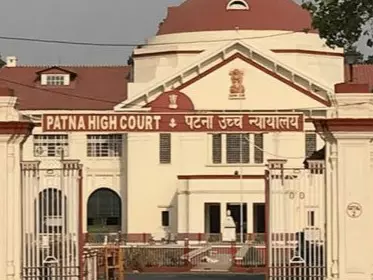Patna High Court rebukes fellow single judge's order, expunges remarks against judicial officers

In a rare institutional intervention, the Patna High Court has expunged adverse remarks made by a sitting Single Judge against subordinate judicial officers, holding that the judge exceeded his jurisdiction while issuing directions that had administrative implications.
A Division Bench comprising Acting Chief Justice Ashutosh Kumar and Justice Partha Sarthy passed two separate but related judgments — LPA No. 698/2025 and LPA No. 699/2025 — both filed by the High Court through its Registrar General. The appeals challenged orders passed by Justice Vivek Kumar Chaudhary, who, while disposing of criminal revision petitions, made sweeping observations against judicial officers and directed action against them without notice.
In one case, Justice Chaudhary stated that the Special Judge (SC/ST Act), Kishanganj “does not know the basic tenets of criminal law” and directed that he be stripped of his Sessions powers and confined to civil work. In another, he commented that an Additional District Judge at Rohtas “is not aware about the Chapter XI and Chapter XXXIII of the Code of Criminal Procedure” and directed that the judge be sent for retraining, while also withdrawing his criminal jurisdiction in the interim.
The Division Bench found these directives to be beyond the remit of a judge sitting in revisional jurisdiction. It held that such directions “assume the trappings of an order passed under Article 226 of the Constitution of India and, therefore, is appealable.
“This is beyond the jurisdiction of a learned Judge dealing with criminal revision,” the court stated.
The Bench expressed strong disapproval of the language used, noting in one case:
"A harsh but an absolutely unmerited and undeserved comment on a Judicial Officer.”
It emphasized that “impertinent, en-passant remarks, which in a way castigates or stigmatizes, must be eschewed as part of self-imposed duty of a Judge.”
The court further noted that such adverse remarks were made without giving the affected judicial officers an opportunity to be heard — a clear violation of natural justice. In one instance, the judge being criticized was not even the author of the bail order under challenge.
Importantly, the Division Bench clarified that the Single Judge’s observations shall not impact the service records of the concerned officers.
“Such observations against the Judicial Officer concerned shall not ever percolate in his ACR or would be used for any purpose in any proceeding whatsoever.”
Quoting precedent from Om Prakash Chautala v. Kanwar Bhan (2014), the Bench reiterated: "Such findings are worth avoiding in the judgments and while penning down the same, there should be a control over the language. A Judge is not to be guided by any kind of notion. The decision-making process expects a Judge or an adjudicator to apply restraint, ostracise perceptual subjectivity and make one’s emotions subservient to one’s reasoning and think dispassionately.”
While upholding the legal conclusions reached by Justice Chaudhary in rejecting the revision petitions, the Division Bench made it clear that the administrative directions issued in the orders had no legal force and were liable to be set aside.
The court concluded that such matters, if warranted, fall strictly under the administrative jurisdiction of the Chief Justice — not within the powers of a judge exercising revisional jurisdiction.
